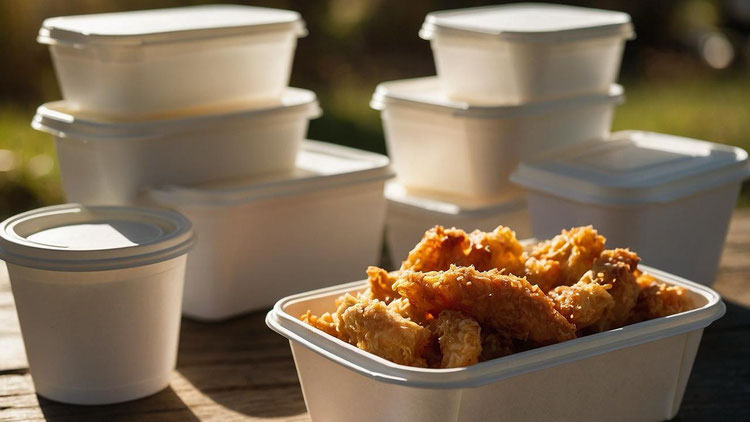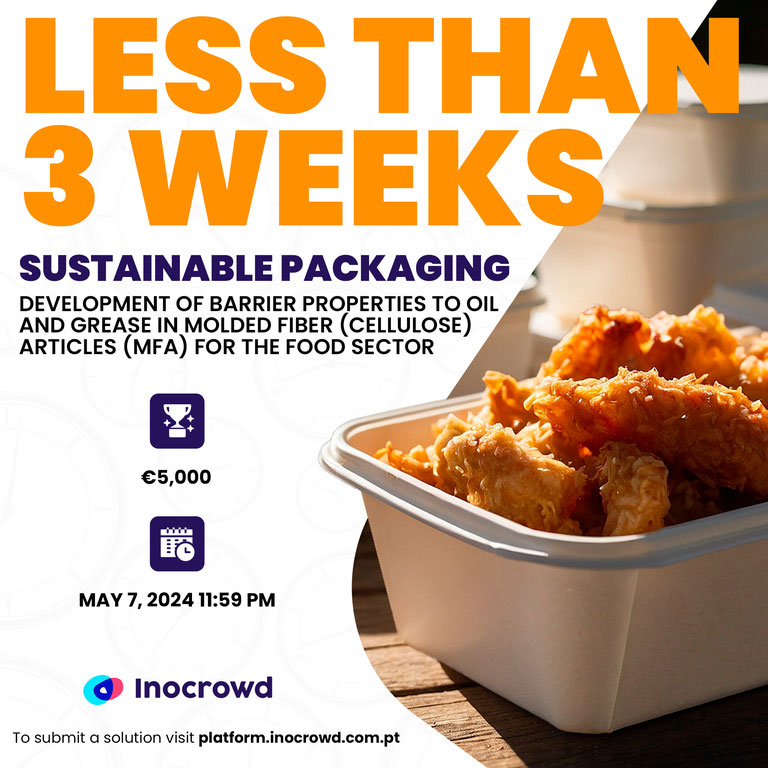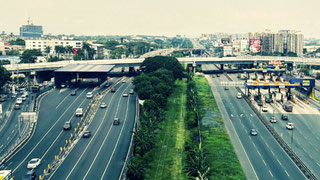Description
Development of oil and grease barrier properties in molded fiber (cellulose) articles (MFA). Identify alternative chemical additives to PFAS that will allow the production of molded fiber (cellulose) articles (MFA) with oil and grease barrier properties to replace single-use plastic packaging for the food service and food packaging segments. The molded fiber (cellulose) articles (MFA) will be produced by the thermoforming process.
Details of the Challenge
There are already on today's market molded fiber (cellulose) articles (MFA) used as an alternative to disposable plastic items, the vast majority of which provide a barrier to oils and fats due to the use of Per- and polyfluoroalkyl substances (PFAS). These are also known as "forever chemicals" as they remain in the environment. It is therefore of utmost importance to find substitutes for these compounds.
PFAS repel grease and water, as they lower the surface energy in such a way that liquids cannot penetrate the structure where PFAS are applied. In molded fiber (cellulose) articles (MFA), the use of PFAS results in oil and grease resistance of over 24 hours and up to temperatures of 120 °C.
The chemicals available on the market which are alternatives to PFAS act by slowing down the penetration of oil and grease and not by repelling it.
We are therefore looking for solutions that slow down the penetration of oil and grease into molded fiber (cellulose) articles (MFA) as much as possible or that act similarly to PFAS, thus guaranteeing the required oil and grease barrier properties.
Implementation on an industrial scale of the presented solution and commercialization of a new generation of PFAS-free products in the molded fiber (cellulose) articles (MFA) market.
Expected Solution
The aim is to obtain a solution that can be added to the pulp aqueous suspension (“wet end” approach) to guarantee oil and grease barrier properties in the final molded fibre (cellulose) articles (MFA).
The selected solution will have to be proven in the production of molded fiber (cellulose) articles (MFA) in industrial conditions, or in a pilot equipment, simulating industrial production, with a minimum quantity of product able to produce 100 units of a 25 g molded fibre (cellulose) articles (MFA).
Definition of analysis parameters in order to understand if that solution is the best:
The performance of the solution should be assessed in the final thermoformed product, carrying out the following tests:
- Heat olive oil, preferably extra virgin at different temperatures. Place a drop of olive oil on the surface of the article with a pipette and observe the penetration of the oil for 24 hours. Record the temperature of the olive oil and the time it takes for the oil to penetrate the thermoformed product or the product that simulates it. Conduct this test for the temperatures selected. Record the results - photographs and video.
- There will be a bonus in evaluating proposals with solutions with a water barrier property. To demonstrate these results, the water should be heated to different temperatures.
Place a drop of water on the surface with a pipette and observe the penetration of water for 24 hours. Record the temperature of the water and the time it takes for the water to penetrate the thermoformed product or the product that simulates it. Conduct this test for the temperatures selected. Record the results - photographs and video.
Proposals that present proven solutions with photographs and videos will receive a bonus in the evaluation.
Proposals in which the products have compostability characteristics and/or allow for the recyclability of the final product will be given a bonus.
Minimum Requirements
- Added to the pulp, that is, mixed with an aqueous suspension of cellulose fiber before the thermoforming stage of the product;
- The thermoformed product or the product that simulates it must have oil and grease barrier properties at different temperatures;
- A bonus will be given in the assessment evaluation if the thermoformed product also has water barrier properties at different temperatures.







